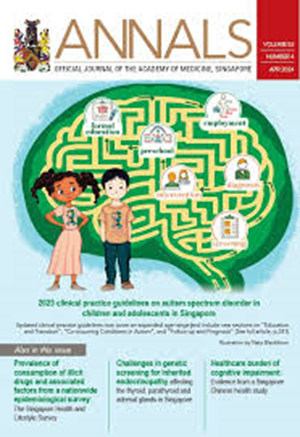韩国一项队列分析显示,抑郁症患者感染COVID-19后预后较差
IF 5.2
4区 医学
Q2 Medicine
引用次数: 0
摘要
目前尚不清楚已有抑郁症的患者是否存在严重COVID-19的高风险。因此,本研究旨在探讨已存在抑郁症患者与严重COVID-19之间的关系。方法:本研究是韩国疾病预防控制院- covid - 19国民健康保险服务队列研究的一部分,该队列研究正在对居住在韩国的18岁及以上成年人进行大规模健康筛查调查。从2019年至2020年参加两年一次的健康筛查的552,860名患者中测量了已有的抑郁症状况。最后,研究人员招募了29106名确诊的COVID-19患者,并对其进行了随访,以跟踪其诊断日期后1个月内的任何严重临床事件。采用多变量调整logistic回归分析计算校正优势比(AOR)和95%置信区间(CI)。结果:共发现2868例有严重临床事件的新冠肺炎患者,26238例无严重临床事件的新冠肺炎患者。中重度抑郁症状组出现COVID-19严重结局的几率升高(AOR, 1.46;95% CI, 1.25-1.72),包括未接种疫苗的患者(AOR, 1.32;95% CI, 1.08-1.61)和完全接种疫苗(AOR, 1.76;95% ci, 1.18-2.63)。此外,那些在健康筛查中被诊断患有抑郁症和抑郁症状的人显示出COVID-19严重后果的风险增加(AOR, 2.22;95% ci, 1.22-4.05)。结论:在未接种疫苗组和完全接种疫苗组中,中度至重度抑郁症状与严重COVID-19事件的发生率较高相关。有抑郁症状的参与者患COVID-19严重后果的风险可能更高。本文章由计算机程序翻译,如有差异,请以英文原文为准。
Poorer outcomes following COVID-19 infection for patients with depression: A cohort analysis in South Korea
Introduction: It remains unknown whether patients with pre-existing depressive conditions are at high risk of severe COVID-19. Therefore, this study aims to investigate the association between patients with pre-existing depressive conditions and severe COVID-19. Method: This study is part of the Korea Disease Control and Prevention Agency-COVID19-National Health Insurance Service cohort study of an ongoing large-scale health screening survey of adults 18 years and older residing in South Korea. Pre-existing depression status was measured from 552,860 patients who participated in a biennial health screening from 2019 to 2020. Finally, 29,106 confirmed COVID-19 patients were enrolled and followed up to track any severe clinical events within 1 month of their diagnosis date. Adjusted odds ratio (AOR) and 95% confidence interval (CI) were calculated using multivariate-adjusted logistic regression analysis. Results: We identified 2868 COVID-19 patients with severe clinical events and 26,238 COVID-19 patients without severe clinical events. The moderate-to-severe depressive symptoms group showed an elevated odds of severe outcomes of COVID-19 (AOR, 1.46; 95% CI, 1.25–1.72), including those without vaccination (AOR, 1.32; 95% CI, 1.08–1.61) and those with complete vaccination (AOR, 1.76; 95% CI, 1.18–2.63). In addition, those who were diagnosed with depression along with depressive symptoms at the health screening revealed an increased risk of severe outcomes of COVID-19 (AOR, 2.22; 95% CI, 1.22–4.05). Conclusion: Moderate-to-severe depressive symptoms were associated with higher odds of severe COVID-19 events in both no and complete vaccination groups. Participants with depressive symptoms may be at higher risk of severe outcomes of COVID-19.
求助全文
通过发布文献求助,成功后即可免费获取论文全文。
去求助
来源期刊

Annals Academy of Medicine Singapore
医学-医学:内科
CiteScore
4.90
自引率
5.80%
发文量
186
审稿时长
6-12 weeks
期刊介绍:
The Annals is the official journal of the Academy of Medicine, Singapore. Established in 1972, Annals is the leading medical journal in Singapore which aims to publish novel findings from clinical research as well as medical practices that can benefit the medical community.
 求助内容:
求助内容: 应助结果提醒方式:
应助结果提醒方式:


